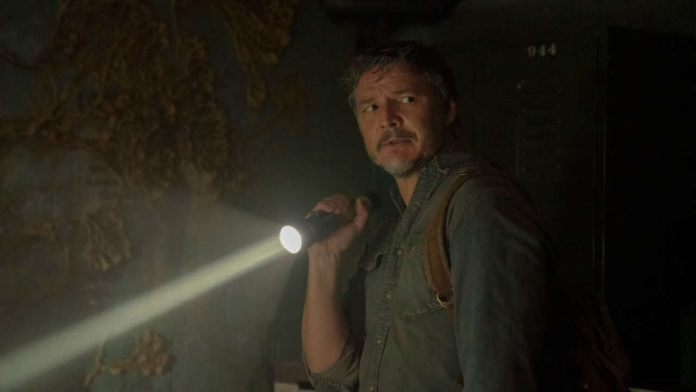The Last of Us is often heralded as a crowning achievement in storytelling, but that praise is sometimes couched in a common derogatory caveat aimed at many other games, too: “It’s a great story–for a video game.” The Last of Us on HBO, co-run by Chernobyl’s Craig Mazin and the game series’ own Neil Druckmann, is a marvelous proof of concept for PlayStation–and really any brand seeking to bring its beloved games to prestige television. Whereas the history of video game adaptations is littered with abject disasters at worst and lovable family movies at best, The Last of Us proves this is a beautiful and gut-wrenching story regardless of the medium. While it’s a notch below both the heights of the incredible original game and HBO’s illustrious best efforts, make no mistake: The Last of Us on HBO feels like the beginning of a new era for live-action video game adaptations.
The post-apocalyptic drama series stars Pedro Pascal (The Mandalorian) and Bella Ramsey (Game of Thrones) as Joel and Ellie, an unlikely duo traversing an American wasteland 20 years after a fungal pandemic destroys the world as we know it. The pair sets off on what is initially pitched as a cargo run, with the 14-year-old Ellie being the so-called cargo, and focuses on their relationship, as well as that of others they meet along the way. On HBO, the grave setting and broken humans at the forefront of the story sit comfortably atop the morally gray foundation that prestige TV has been built on since Tony Soprano first stepped into Dr. Melfi’s office almost 25 years ago.
The show, on the whole, is very faithful to the game. As someone who has played the game more than half a dozen times, I wondered how it would seem to fresh eyes. Often, the TV series delivers a scene that is nearly a shot-for-shot replica of the game, from the dialogue to even the cadence of its delivery. In the premiere episode, when Joel’s daughter Sarah jokes with her dad that she sold “hardcore drugs” to afford to fix his watch as a birthday gift, she says it precisely the same way players will already have heard. When she later awakens in the middle of the story’s first fateful night, she calls out for Joel twice in a tone that sounds uncannily like her video game counterpart. I wrestled with my feelings over these near-perfect recreations whenever they appeared. Was it beneficial to be so faithful, and thus largely predictable, to the millions who have played the game already? I sometimes enjoyed it, but other times found it distracting. Naturally, those coming into the show without any experience with the game won’t have this issue.
For those who played the video game, familiar characters will come to life in memorable new ways.
Gallery
But it doesn’t take long, even in the first episode, for the series to show a willingness to pivot in order to fit the story’s new format. There are things that only the video game can do, like put players in the boots of Joel, but there are things also unique to television, and The Last of Us shines brightest when it recognizes and leans into these opportunities. Sometimes they’re fun alterations made to surprise familiar viewers in an otherwise faithful scene, but the crowning achievements of The Last of Us on HBO come whenever the story pivots to spend extended time with characters who aren’t Ellie and Joel.
Players of a AAA action-adventure game sometimes don’t expect or even want a long, slow ramp-up with characters who aren’t the focus of the game or serve another gameplay function. In a character-led drama on TV, we can soak for a while longer since there’s no gameplay expectation to meet. Condensing some gunfights from 20 enemies killed in-game down to five on the show tells the same overarching story but gives the writers more time to spend on the excellent characters.
Each time this happened, it felt new and genuinely additive to the overall story. Characters that Joel and Ellie meet on their travels who had brief appearances in the game are given room to express themselves as more than cautionary tales for Joel’s thawing heart. Led by brilliant writing that consistently gets to the center of the series’ long-standing themes, these portions of the show are spectacular and justify the entire endeavor. A strictly faithful series would feel limited, and perhaps only best enjoyed by those who have no prior experience with the game, but these additions to the story make The Last of Us feel like it’s found the best-case scenario, where the adaptation is both faithful and reimagined in smart ways.
One example of extended time spent with other characters actually consumes an entire episode, ditching the main characters almost completely. It is the season’s best episode and the one I’ve thought about the most, as it shows that The Last of Us as a TV show is capable of being as touching and distressing and beautiful and scary as the game is. It further drives home the emerging sentiment that maybe movies were never the right format for live-action video game adaptations and serialized TV is a much better place to make good on what games have to offer. After so many forgettable movies, HBO’s The Last of Us–split into roughly nine hours–feels almost effortlessly great at times.
Much of that high bar can be credited to the cast, too. Pascal and Ramsey are magnificent as Joel and Ellie. In the first episode, I cried twice watching Pascal perform as Joel–once at a moment you’d likely guess if you already know the story, but the other time was during a rather basic moment in which Joel was working out of the back of a truck. Pascal’s ability to morph into a character whom I’ve held close to my heart for a decade was a sight to behold, sometimes freezing me in awe. With great nuance, he has to portray two Joels–one before the collapse of 2003 and a new Joel 20 years later. Shades of who he would become can be seen in the former time period, but when the story jumps ahead, his touch of optimism is gone, and an ugly world-weariness sets in and hardens him like clay left in the sun.
The Last of Us on HBO never tramples over the game, but it skillfully adds its own lore.
Gallery
Ramsey, to their credit, similarly captures Ellie’s vulgar defiance and sarcasm in a way that often becomes the comic relief on the show even as, like the game, comic relief is a rare thing to witness. The show, also like the game, is really about these two characters and how their relationship changes over the course of several months, and the pair’s chemistry as surrogate father and daughter keeps what’s important from the 2013 game without it ever feeling like they’re doing impressions of the original actors, Ashley Johnson and Troy Baker.
Because it’s HBO, the co-stars are flanked with an embarrassment of riches when it comes to the supporting cast. Anna Torv, Melanie Lynskey, Gabriel Luna, Nick Offerman, Murray Bartlett, and more bring to life characters who, whether you’re meeting them for the first time or seeing old polygons in new ways, keep the series well above the “fan film” air some worry a project like this will feel like.
The show also puts to use much of the original and iconic score from Gustavo Santaolalla. It would’ve been an unforced error for the creators to look elsewhere to set the tone, as the composer’s work has long been the pitch-perfect accompaniment to what Naughty Dog was going for. That remains true on TV, including an awesome opening credits sequence that will surely become an earworm for folks who haven’t already been listening to the song for the past decade.
I say it a lot, but HBO has long been the standard bearer for prestige television. If I made a list of the 10 best dramas ever made, almost all of them will have originated on HBO over the past quarter of a century. I don’t think The Last of Us would make that list today, nor do I think this series is the definitive way to experience the story. It’s most powerful as an interactive experience, though I admit it’s hard for me to know for sure, not having the inexperienced eyes one might truly need to compare them on even ground. But it does feel like a vital expansion of a fictional universe I love so much, and if it’s given room to grow and tell the whole story, I could see it reaching the top tier of HBO shows in time.
I can no longer look at some characters from the game without recalling their more expansive arcs in the show, and I think that’s both a commendation for the show and a benefit to the property as a whole. The game is ultimately a better way to experience the story of The Last of Us, but the show retroactively makes the game better, too, coloring characters more vibrantly in a way I’m content to consider canon for Naughty Dog’s games.
But the HBO adaptation doesn’t need to be better than the 2013 game, nor does it need to be better than The Sopranos or Six Feet Under. It stands proudly as one of the best video game adaptations ever, and a clear signal that PlayStation is right to pursue a future where its already reputable video games are reborn on TV. The show is brought to life by a cast and crew that seems hellbent on living up to its name and their own already-glowing reputations. That’s a formula that can be repeated in some other instances, and I’m eager to see how those turn out down the line. For now, though, I’m most excited to see The Last of Us find new life in ways that are similarly haunting and gorgeous, while still being importantly unique in ways I’ll never forget.



